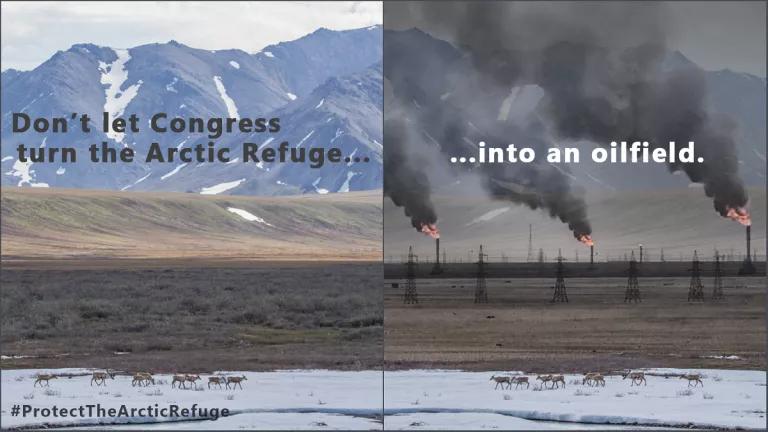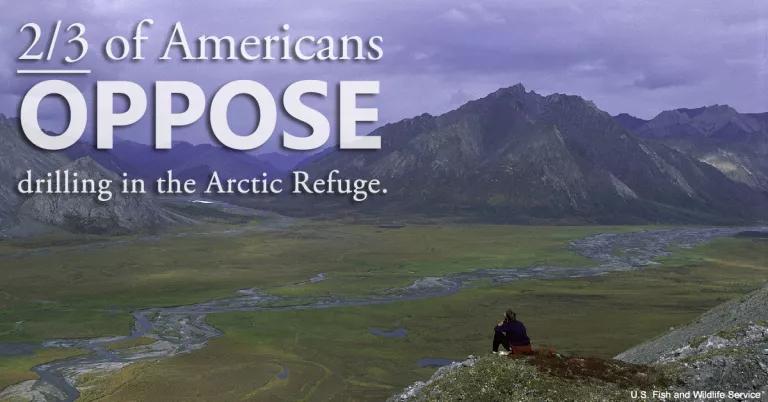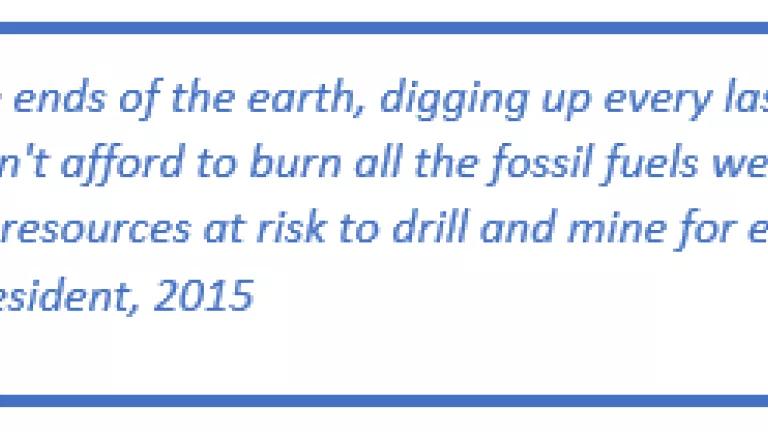The Budget Is an Oil-Filled Trojan Horse

Congress has officially launched the next phase in the ongoing budget battle, with the House holding a mark-up of budget legislation that, if ultimately successful, will lay out the framework for the federal budget going forward.
Normal enough, right? But there is a hitch that could pervert this seemingly straightforward fiscal exercise into yet another Trojan horse for unpopular, policy giveaways that have no chance to pass on their own.
Here’s how it works. First, the “budget reconciliation” process comes with special procedures that allow the budget committee to include instructions to the rest of Congress to change laws in order to meet whatever budgeting “targets” the budget committee puts forward. Second, these provisions all just get bundled together for a single majority-only vote so the individuals never get independent up-or-down votes. That means, used improperly, the final budget bill is basically a rider magnet on steroids.
So far, Republican Leadership has made it all too clear that they intend to utilize the budget process to jam through some of the most unpopular provisions they haven’t been able to pass through standard rules.
And no surprise, their primary target this round is to pry open the nation’s remaining intact public lands and oceans for expanded drilling. They’re starting by trying to turn the Arctic National Wildlife Refuge into a moonscape of drill rigs and crisscrossing pipelines and expose our unspoiled coasts to the oil spills and pollution that are part and parcel of offshore drilling.
Such an attempt doesn’t add up. It flies in the face of growing, bipartisan public opposition, overlooks economic harm to existing local economies and cherished ways of life, all while ignoring the decades of existing oil reserves the fossil fuel has stockpiled and the cost to taxpayers of continuing to subsidize the high-cost, high-risk plunder of our shared natural resources.
Let’s start with the basics. The reconciliation process is supposed to be about finding new ways to generate revenue. But that doesn’t wash when it comes to the sell-off of more public lands. For starters, the administration recently slashed the royalty rate for an upcoming offshore lease sale to its statutory minimum—despite study after study showing that existing rates are already far below market rates. Second, even as they spin a yarn about fossil fuel revenue balancing the budget, certain Senators and Members of Congress propose bills to transfer even these bargain basement royalties to their home states. Third, the debate over expanded oil and gas drilling notoriously ignores just how dependent new drilling is on a web of taxpayer subsidies. For example, recent studies show that expanded offshore drilling relies on large scale hand-outs to fund the high-cost, high risk prospect of sinking drill rigs into ocean waters. Finally, there is never any mention of the costs to the federal government and states when its time clean up after the inevitable oil spills, water pollution, and land degradation that comes with drilling and mining.

The broad unpopularity of expanding fossil fuel extraction on public lands should give Republican Leadership a second reason to reconsider hijacking the budget. Our public parks, monuments, national forests, wildlands and vibrant oceans, set aside for all to enjoy, are a unique part of our collective heritage. These lands and waters belong solely to the American people and preserving them has been one of America’s great innovations. That is why poll after poll and public comment period after comment period reveal the same thing: Americans want to preserve and protect our remaining intact natural heritage, not sell it off to international oil conglomerates. For example, this survey found that “Nearly two-thirds of voters who voted for President-elect Donald Trump…oppose the idea of privatizing or selling off some areas of America’s national forests and public lands.” More specifically, multiple polls reveal a growing public preference for protection and investment in clean energy over fossil fuel extraction on federal lands.
Third, we do need more energy jobs today, but we need them in clean renewables that cut pollution while generating good-paying, domestic jobs. Investing in more public lands drilling today is barreling the U.S. into the past. Our financial resources and industry attention should be focused on strengthening the economy, growing jobs and remaining a global energy leader. And that means investing in clean solar and wind energy—the fastest growing and cheapest sources of new energy generation—a increased energy efficiency, battery storage and other modern technologies to power our nation. That’s the smart path to delivering hundreds of thousands of well-paying jobs that can’t be shipped overseas.
Finally, sacrificing our natural heritage has nothing to do with “energy dominance”; We don’t need this energy. Risking our public forests and wildlands, coastal environments, and local economies so we can ship the oil overseas may boost oil conglomerate profits, but it won’t make us more secure. Instead of “fueling America,” it would benefit other nations and set us back in winning the global clean energy technology race. Moreover, the fossil fuel industry has stockpiled decades’ worth of oil reserves, more than enough to transition to an urgently needed carbon-free future. Bottom line, there are far less risky energy sources to tap--that don’t come at the expense of our natural landscapes and continued taxpayer subsidies for some of the wealthiest corporations on Earth.
For all these reasons, any “budget reconciliation” instruction designed to turn more federal lands and oceans over to private oil companies is nothing more than another gift to the oil industry at the expense of communities, healthy lands and oceans, and taxpayer pockets.
Republican Leadership should think twice not only about converting the budget process into a giant hand-out to private fossil fuel companies, but also using it as a delivery mechanism for unpopular measures that run counter to the public interest


